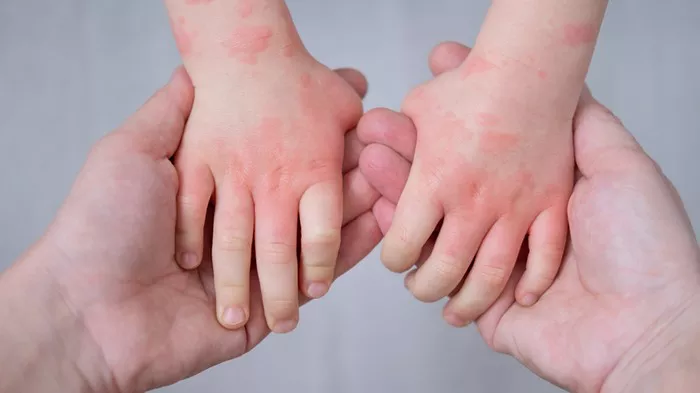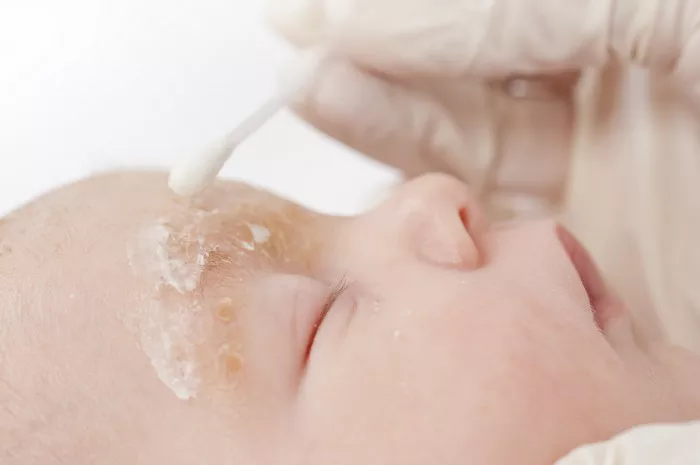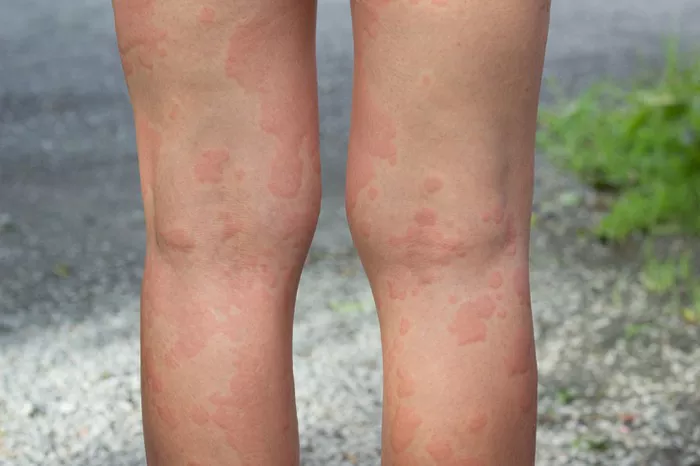Eczema, also known as atopic dermatitis, is a chronic skin condition characterized by red, inflamed, and itchy skin. Eczema bumps are a common manifestation of this condition and can be particularly uncomfortable and distressing for sufferers. Treating eczema bumps effectively requires a multifaceted approach that addresses both the symptoms and the underlying causes. This article provides a detailed guide on how to treat eczema bumps, combining medical treatments, lifestyle changes, and home remedies.
Understanding Eczema Bumps
Eczema bumps, also known as papules or vesicles, are small, raised lesions that can appear anywhere on the body. They are often filled with fluid and can burst, leading to further irritation and potential infection. These bumps are a result of the skin’s inflammatory response to various triggers, including allergens, irritants, stress, and environmental factors.
Medical Treatments for Eczema Bumps
When dealing with eczema bumps, it is crucial to seek medical advice to determine the most appropriate treatment plan. Here are some common medical treatments prescribed by healthcare professionals:
Topical Corticosteroids
Topical corticosteroids are the most commonly prescribed treatment for eczema. They work by reducing inflammation and suppressing the immune response. For eczema bumps, low to medium potency corticosteroids are often effective. However, prolonged use of these medications can lead to side effects such as skin thinning, so they should be used under the guidance of a healthcare provider.
Topical Calcineurin Inhibitors
Topical calcineurin inhibitors, such as tacrolimus and pimecrolimus, are non-steroidal medications that help reduce inflammation and itching. They are particularly useful for sensitive areas of the skin, such as the face and neck, where corticosteroids might be too harsh.
Antihistamines
Antihistamines can help alleviate itching and improve sleep quality for those suffering from eczema bumps. Non-drowsy antihistamines are typically used during the day, while sedating antihistamines can be taken at night to promote better sleep.
Antibiotics
In cases where eczema bumps become infected, antibiotics may be necessary. These can be administered topically or orally, depending on the severity of the infection. It is important to follow the prescribed course of antibiotics to ensure the infection is fully eradicated.
Phototherapy
Phototherapy, or light therapy, involves exposing the skin to ultraviolet (UV) light under medical supervision. This treatment can help reduce inflammation and improve the appearance of eczema bumps. Phototherapy is typically considered when other treatments have not been effective.
SEE ALSO: How to Heal Eczema Patches
Lifestyle Changes to Manage Eczema Bumps
In addition to medical treatments, certain lifestyle changes can significantly impact the management of eczema bumps. These changes aim to reduce exposure to triggers and improve overall skin health.
1. Identify and Avoid Triggers
The first step in managing eczema bumps is identifying and avoiding triggers that can exacerbate the condition. Common triggers include:
- Allergens: Pollen, dust mites, pet dander, and certain foods can trigger eczema flare-ups. Keeping a diary of symptoms and potential triggers can help pinpoint specific allergens.
- Irritants: Harsh soaps, detergents, and certain fabrics can irritate the skin. Opt for hypoallergenic and fragrance-free products, and choose soft, breathable fabrics like cotton.
- Stress: Stress can worsen eczema symptoms. Incorporating stress-reduction techniques such as yoga, meditation, and deep-breathing exercises can be beneficial.
- Climate: Extreme temperatures and humidity levels can trigger eczema. Protecting the skin from harsh weather conditions and using humidifiers in dry environments can help.
2. Maintain a Skincare Routine
A consistent skincare routine is essential for managing eczema bumps. This routine should focus on keeping the skin moisturized and protected.
- Moisturize Regularly: Applying a thick, fragrance-free moisturizer immediately after bathing helps lock in moisture. Look for products containing ceramides, which help restore the skin’s barrier function.
- Gentle Cleansing: Use mild, soap-free cleansers to avoid stripping the skin of its natural oils. Lukewarm water is preferable to hot water, which can dry out the skin.
- Pat Dry: After bathing, gently pat the skin dry with a soft towel instead of rubbing. This helps prevent further irritation.
3. Diet and Hydration
Diet can play a role in managing eczema. While individual triggers vary, certain dietary changes may help reduce inflammation and improve skin health.
- Anti-inflammatory Foods: Incorporate foods rich in omega-3 fatty acids, such as salmon, flaxseed, and walnuts, as they have anti-inflammatory properties.
- Probiotics: Foods containing probiotics, like yogurt and kefir, can promote gut health, which is linked to skin health.
- Hydration: Drinking plenty of water helps keep the skin hydrated from within.
Home Remedies for Eczema Bumps
In addition to medical treatments and lifestyle changes, several home remedies can provide relief from eczema bumps. These remedies are often easily accessible and can be used in conjunction with other treatments.
1. Oatmeal Baths
Colloidal oatmeal baths can soothe itching and inflammation. Add a cup of finely ground oatmeal to a lukewarm bath and soak for 15-20 minutes. Pat the skin dry and apply a moisturizer immediately after.
2. Coconut Oil
Coconut oil has natural anti-inflammatory and antibacterial properties. Applying virgin coconut oil to the affected areas can help reduce itching and prevent infection. It is best applied after bathing when the skin is still damp.
3. Aloe Vera
Aloe vera gel is known for its soothing and healing properties. Applying pure aloe vera gel to eczema bumps can help reduce redness and itching. Ensure the aloe vera product is free from fragrances and additives that might irritate the skin.
4. Honey
Raw honey has antimicrobial and anti-inflammatory properties. Applying a thin layer of honey to the affected area and covering it with a bandage can help heal eczema bumps. Leave it on for about 20 minutes before rinsing off with lukewarm water.
When to Seek Professional Help
While many cases of eczema can be managed with home remedies and over-the-counter treatments, it is important to seek professional help if:
- Symptoms Worsen: If eczema bumps become more severe or spread despite treatment, consult a healthcare provider.
- Signs of Infection: Symptoms such as increased redness, warmth, swelling, or pus indicate an infection that requires medical attention.
- Quality of Life: If eczema significantly impacts daily activities or sleep, a dermatologist can provide specialized care and advanced treatment options.
Conclusion
Treating eczema bumps requires a comprehensive approach that combines medical treatments, lifestyle changes, and home remedies. By identifying triggers, maintaining a consistent skincare routine, and seeking professional help when necessary, individuals with eczema can effectively manage their symptoms and improve their quality of life. Remember, managing eczema is a journey, and finding the right combination of treatments may take time and patience. With the right strategies in place, however, it is possible to achieve significant relief and healthier skin.
Related Topics:


























